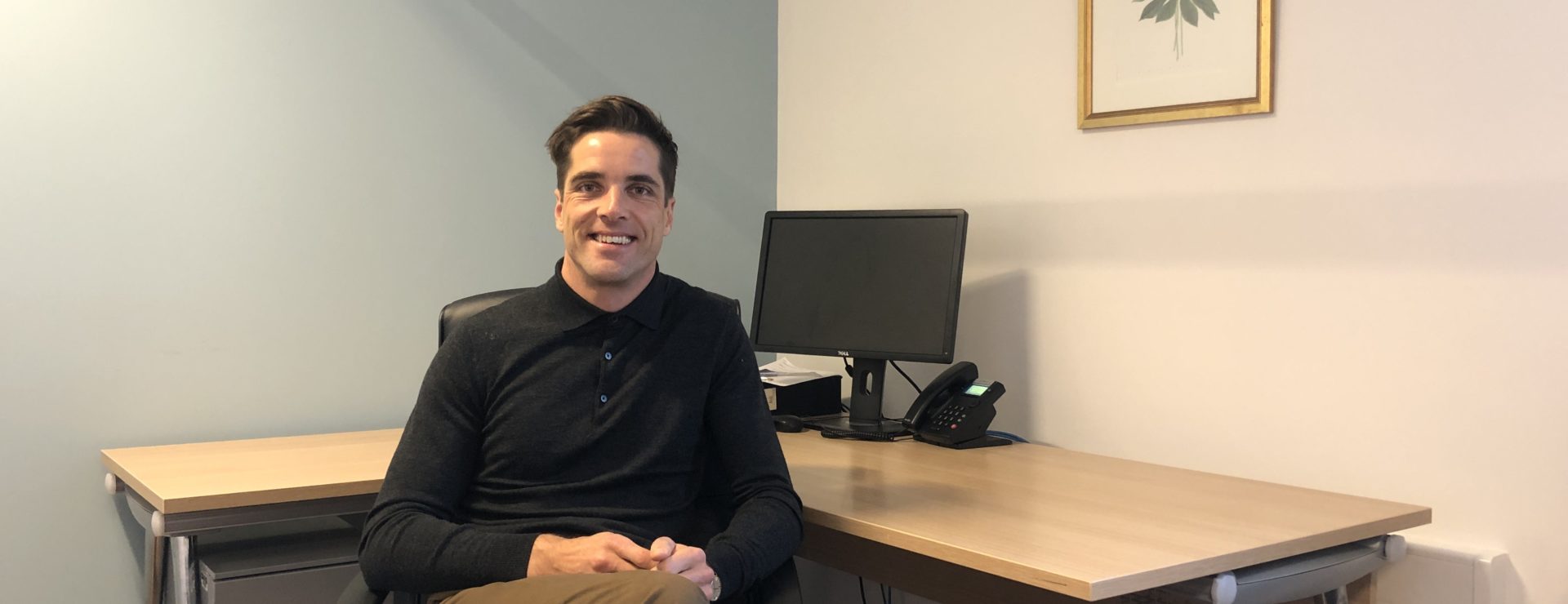Discussing Men’s Health with Dr Nathan Faulkner
Blog News 28th November 2019 Enquiries & appointments
We met with our Counselling Psychologist and Psychotherapist Dr. Nathan Faulkner, SCCH Consulting Affiliate, to discuss some key men’s health issues and the importance of seeking support and treatment when needed.
How do physical and mental health issues affect each other?
Many mental health experiences such as anxiety, depression and panic often include very powerful physical sensations such as irregular breathing, churning stomach and feeling exhausted. Similarly, our physical health can have a major impact on our mental health. Our expectations about an illness or diagnosis, including worries about worst case scenarios, as well as the stress caused by health conditions can all affect our mental state.
Worries about physical health can also trigger ideas and myths men have about what it is to be male and the social expectations surrounding this identity.
Why might some men not seek support for their health and mental health?
The term toxic masculinity has been used recently in the media to refer to the ways men might feel pressured to conform to traditional male gender roles. Men sometimes feel that talking about physical or mental health issues might feel embarrassing. In my work with male clients I often hear men refer to feeling the need to man up which often reflects a belief they should either not feel certain emotions and/or that they should just get on with things regardless of how they are feeling.
Holding the belief that we should ‘just get on with it’ can sometimes result in people telling themselves that no one is able to help them; this can mean they don’t seek support from a professional who is trained to support them.
How can friends and loved ones’ support men to open up and talk more?
It can be extremely hard to see someone we love and care about dealing with things that are causing them distress or discomfort. You don’t have to be a mental health professional to offer valuable support though. If we know someone is finding something difficult, simply listening without placing any pressure on yourself or the other person to necessarily ‘fix’ anything can allow someone the chance to express what’s going on for them.
Normalizing the need to seek support can also help a person to view contacting a mental health professional not as a sign of weakness but as an opportunity to learn new ways of moving forward.
How does talking about health issues help men cope better?
Meeting with a psychologist or psychological therapist is not only for people who are in crisis. I regularly meet with those who would like to identify ways they might improve their mental and/or physical health or cope better with dealing with physical symptoms, medical regimens and a change in lifestyle.
For example, one male client I worked with told me how he had been initially sceptical of the potential benefits of breathing exercises we discussed for managing his experience of anxiety. After practising the techniques, he was amazed at how effective they had been. This example highlights that we often do things out of habit and don’t realise how small adjustments can be hugely beneficial for our general mental and physical health.
Another male client told me how looking back over the sessions we had together he noticed he was initially sceptical about how talking to someone could help with his low mood and how he had spent the first few sessions waiting for me to do something that would suddenly change how he felt. Around midway through our work, he began to realise how beneficial becoming an active participant in his own care was and that by the two of us working collaboratively, he became increasingly motivated to continue and felt he had developed the skills to better cope with his own mental and physical health.
What services are available at KIMS Hospital for men that would like support with their mental health?
The service I provide at KIMS Hospital offers people the opportunity to meet and talk about what they are experiencing in a safe and non-judgemental environment. Through meeting and talking together people have the chance to not only clarify their understanding of what they’re experiencing but also identify ways in which they might move forward. Having worked in the field of health and mental health for 15 years I’ve been fortunate enough to have supported people who might be experiencing distressing mental health experiences, those living with long-term health conditions or who are living with significant changes following surgery, as well as individuals who would like to adopt a proactive approach to their physical and mental health in the future.
For more information on the Psychological Medicine services available at KIMS Hospital, you can visit our Psychological Medicine page or contact our enquiries team by calling 01622 237 727 or emailing enquiries@kims.org.uk